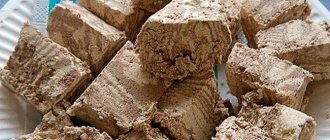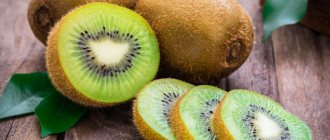Hawthorn during breastfeeding – are there any restrictions on use?
During pregnancy, a woman should be especially attentive to her health, monitor what foods she consumes, and maintain the vitamin balance in her body.
Often, to cope with stressful situations, expectant mothers resort to traditional medicine, believing that they have no contraindications.
Hawthorn is considered a common remedy to relieve nervous tension and irritation.
During the period of bearing a child, the female body is completely rebuilt and is subjected to serious stress. This also affects nervous tension.
The woman becomes more emotional and mood swings often occur. Hawthorn helps to cope well with this problem.
This plant is called a natural first aid kit; its chemical composition surprises with its uniqueness.
It contains a whole complex of vitamins: A, D, E, P, K, B vitamins, and also microelements such as zinc, magnesium, potassium, copper, phosphorus, iron, calcium. Such a rich composition has a positive effect on all body functions.
Rest and proper sleep are important for pregnant women. Fresh hawthorn fruits or tea brewed from them will help cope with insomnia, reduce the excitability of the nervous system and have a sedative effect.
This plant has a beneficial effect on the functioning of the heart, improves blood flow, has a vasodilating effect, and normalizes the rhythm of heart contractions.
Many women experience vascular diseases during pregnancy. And here we cannot do without the miraculous properties of hawthorn. It reduces cholesterol levels and normalizes blood clotting, preventing the formation of plaques.
Flower tea helps relieve swelling, and berry infusions are good for the digestive system.
The medicinal plant can normalize high or low blood pressure, so it is used in recipes for hypertension and hypotension.
Hawthorn as a medicine has its contraindications. Before starting treatment, it is recommended to consult a doctor.
Contraindications
In some cases, the use of hawthorn is strictly prohibited. This can harm not only the expectant mother, but also the baby in the womb.
Contraindications for use:
Hawthorn tincture is usually prepared using alcohol. Alcohol-containing products are prohibited for pregnant women in any form.
What effect does hawthorn have on a child’s body?
Pediatricians do not recommend giving hawthorn to children under 12 years of age. The child's body is in the process of formation. His metabolic processes work much faster than those of an adult.
It is impossible to predict what effect hawthorn will have on a fragile organism.
The plant is recommended for children in the following cases:
- hyperactivity;
- insomnia;
- tachycardia;
- diarrhea.
Only a pediatrician can prescribe the correct treatment and dosage appropriate for the child’s age.
Is it possible to take hawthorn while breastfeeding?
After the birth of a baby, a woman especially needs recovery.
It is necessary to carefully select the diet, since all foods consumed by the mother are broken down into elements and end up in breast milk.
The effect of many substances on the baby’s body may not be the most favorable, from digestive problems to allergic reactions.
Hawthorn has a beneficial effect on breast milk production. It is recommended to use tea not with berries, but with plant petals. It is best to start using it after the child is six months old. During this period, the baby’s body will become stronger and it will be easier to tolerate new components.
Monitor your child's reaction after introducing a new product. Hawthorn is an allergenic product.
In the pharmacy you can find hawthorn in different forms:
- pills;
- tincture based on ethyl alcohol;
- dried fruits;
- flowers.
The tablets are placed under the tongue and dissolved until completely dissolved. Swallowing tablets and drinking water is not recommended. The standard course of treatment is twenty days, but it can be increased by a specialist.
Hawthorn tincture should be consumed strictly after meals, 2-3 times a day. Usually 20-30 drops are dissolved in 100 ml of water. The course has no strict restrictions. Discontinuation of the drug occurs after the condition improves.
A decoction is made from the fruits. For 200 ml of water, use 1 tablespoon of dried fruits, bring to a boil, and then leave for 3 hours. Only enamel dishes are suitable for cooking. It is recommended to take 20 ml 3-4 times a day, 30 minutes before meals.
You can make a tincture at home from fresh berries. Take 50 g of fruit per 200 ml of water. Pour pre-heated water into a thermos, add chopped hawthorn and leave for about an hour. The tincture is consumed 50 g in the morning and evening.
Tea made from the flowers and fruits of hawthorn is very popular. It can be brewed, combined with other beneficial herbs and berries, or as a single component. This decoction is prepared according to the classic black tea recipe.
For heart failure, juice from hawthorn berries will be very useful.
Take a glass of fresh or frozen berries, chop and mix with water.
The resulting mass must be heated to 30 degrees and squeezed through gauze. Take 1 tablespoon twice a day an hour before meals.
Tea made from hawthorn berries and St. John's wort will help eliminate feelings of anxiety and irritation. Mix the plants in equal proportions and pour boiling water for 15 minutes.
An infusion of hawthorn fruit and peppermint will cope with the symptoms of heartburn due to gastritis. To prepare, mix 1 teaspoon of each component and pour a glass of hot water for half an hour.
An infusion of flowers will help digestion. It is prepared very simply: 1 tablespoon per glass of boiling water, leave for 1 hour. Use 20 ml one hour before meals.
Hawthorn honey
Hawthorn honey is quite rare. This is one of the most valuable varieties of honey; it has unique properties and affects almost all functions of the body.
This honey is especially recommended for use after heart attacks and strokes, for heart failure and arrhythmia, for hypertension, etc.
Like any honey, it is also useful for colds and sore throats.
It is better to use this product in dosage. For adults, the recommended daily dose is two tablespoons, for children – two teaspoons.
Hawthorn jam
My favorite treat from childhood is jam. It is not difficult to prepare it from hawthorn; you need to add 0.5 kg of sugar to 1 kg of berries and leave it like that overnight. Then boil for 30 minutes and repeat this procedure after 6 hours.
Hawthorn compote
Rinse 200 grams of berries thoroughly and place in a sterilized jar. Prepare syrup, 350 grams of sugar per 3 liters of water. Pour the syrup into a jar of fruit and roll up.
Hawthorn syrup
A very tasty and healthy delicacy is hawthorn syrup. It is very easy to prepare.
You need to take 1 kg of berries, 1 liter of water and cook until soft.
Then you need to strain everything through cheesecloth, add 1 kg of sugar and cook until the product thickens, adding a little citric acid at the very end.
There is no doubt that hawthorn has unique properties that can have a preventive and therapeutic effect on our body.
But, like any medicine, it must be used with caution, knowing the limits and contraindications.
For serious illnesses, only a doctor can determine the correct dosage and prescribe a course of treatment.
Source: https://momjournal.ru/kormlenie/grudnoe-vskarmlivanie/boyaryshnik-pri-grudnom-vskarmlivanii.html
What are the benefits of hawthorn for nursing mothers?
The healing properties of this plant were known in ancient times, and even today it is widely used for:
- treatment of cardiovascular diseases and normalization of heart rhythm;
- normalization of the digestive tract (for example, for diarrhea as an astringent or for gastritis);
- normalization of pressure as a vasodilator (to lower it);
- cleansing the body of toxins, waste and heavy metal salts;
- normalization of sleep (for insomnia);
- eliminating dizziness and headaches;
- relieving fatigue and nervous tension (for worries, anxiety, irritability);
- treatment of infectious diseases - as a strengthening agent;
- regulation of blood sugar levels in diabetes;
- relieving spasms;
- as a weak diuretic;
- lowering blood cholesterol levels;
- activating brain function and improving memory.
Hawthorn contains a lot of useful substances (no less than rose hips): glucosides (stimulate the heart and lower blood pressure), vitamins (A, C, P), trace elements (iron, zinc, copper, manganese), tannins, fructose , pectins, organic acids, flavonoids.
However, hawthorn is contraindicated for people with individual intolerance to this plant. And even those who tolerate it well, when preparing potions and culinary dishes with this ingredient, should strictly adhere to the proportions specified in the recipe.
Of course, in the postpartum period, a woman may experience or worsen the above diseases, and hawthorn could help solve some of the problems that arise (for example, relieve stress, nervous tension, help relax or improve digestion) or be used as a preventative against colds.
However, mothers who are breastfeeding should use this plant carefully, as it can affect both lactation and the condition of the baby.
Research by scientists has shown that hawthorn enhances lactation, but the baby’s reaction to this “ingredient” of mother’s milk should also be taken into account.
Hawthorn during breastfeeding - benefits for the baby
Every nursing woman who takes hawthorn for medicinal or prophylactic purposes should remember that quite a large part of it then passes into the milk, and with it into the baby’s body.
Pediatricians do not recommend consuming hawthorn until the baby’s digestive system adapts to “external” conditions, that is, until he reaches 3-4 months of age. It is better to give preference not to pure infusions from this plant, but to teas with the addition of hawthorn flowers, and in limited quantities (check with your doctor and pediatrician about this).
This component can affect babies in different ways, because children are all individual, and therefore the baby may experience the following troubles due to hawthorn, if the mother constantly uses it:
- failure of blood pressure and blood flow in general;
- heart rhythm disturbance;
- digestive and stool disorders;
- allergy;
- excessive excitement, capriciousness, anxiety and irritability (the baby constantly screams) or, conversely, lethargy and passivity;
- weakness (the baby will sleep constantly).
Any such symptoms should alert parents.
Medicinal properties of the plant
Botanical description – semi-evergreen shrub from the rose family. For medicinal purposes, fragrant flowers and red fruits similar to small apples are used. The healing properties are confirmed by official medicine; tinctures and dietary supplements are made from raw materials. Benefits of the plant for the body:
- reduces the acidity of gastric juice;
- normalizes blood pressure;
- vitaminizes and improves immunity;
- has a sedative effect;
- helps cope with the symptoms of digestive disorders - diarrhea and flatulence.
It has an interesting property - it increases or decreases blood pressure depending on the dosage and combination with additional ingredients. This must be taken into account when drawing up compositions. It would seem that there is no better medicine for young children - they are often overexcited, their intestines are unstable, and hawthorn tea eliminates the problems. But official medicine allows the use of hawthorn for children under 12 years of age symptomatically, in rare cases when there are no other drugs at hand.
Read also: Fence made from your own material










